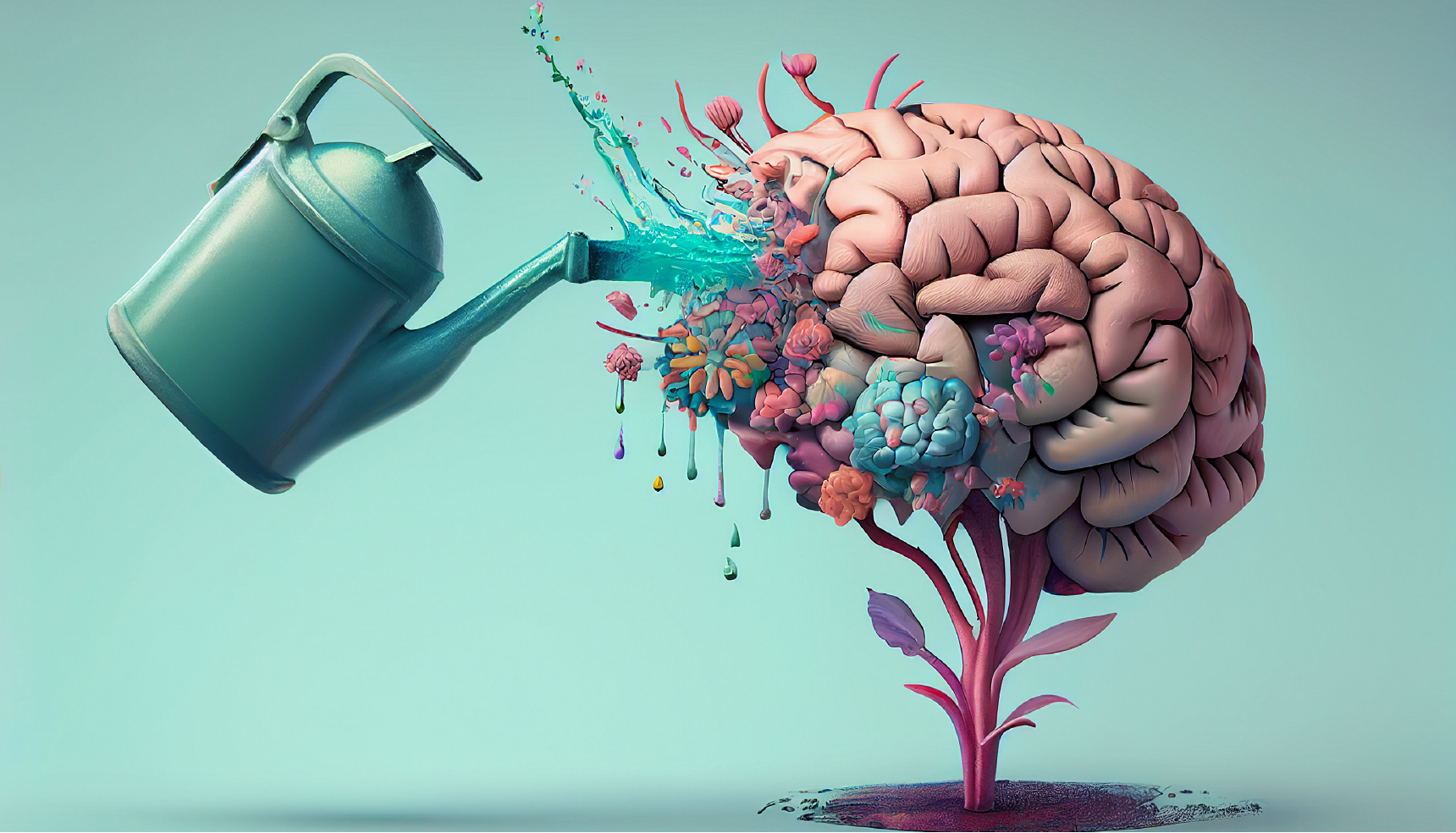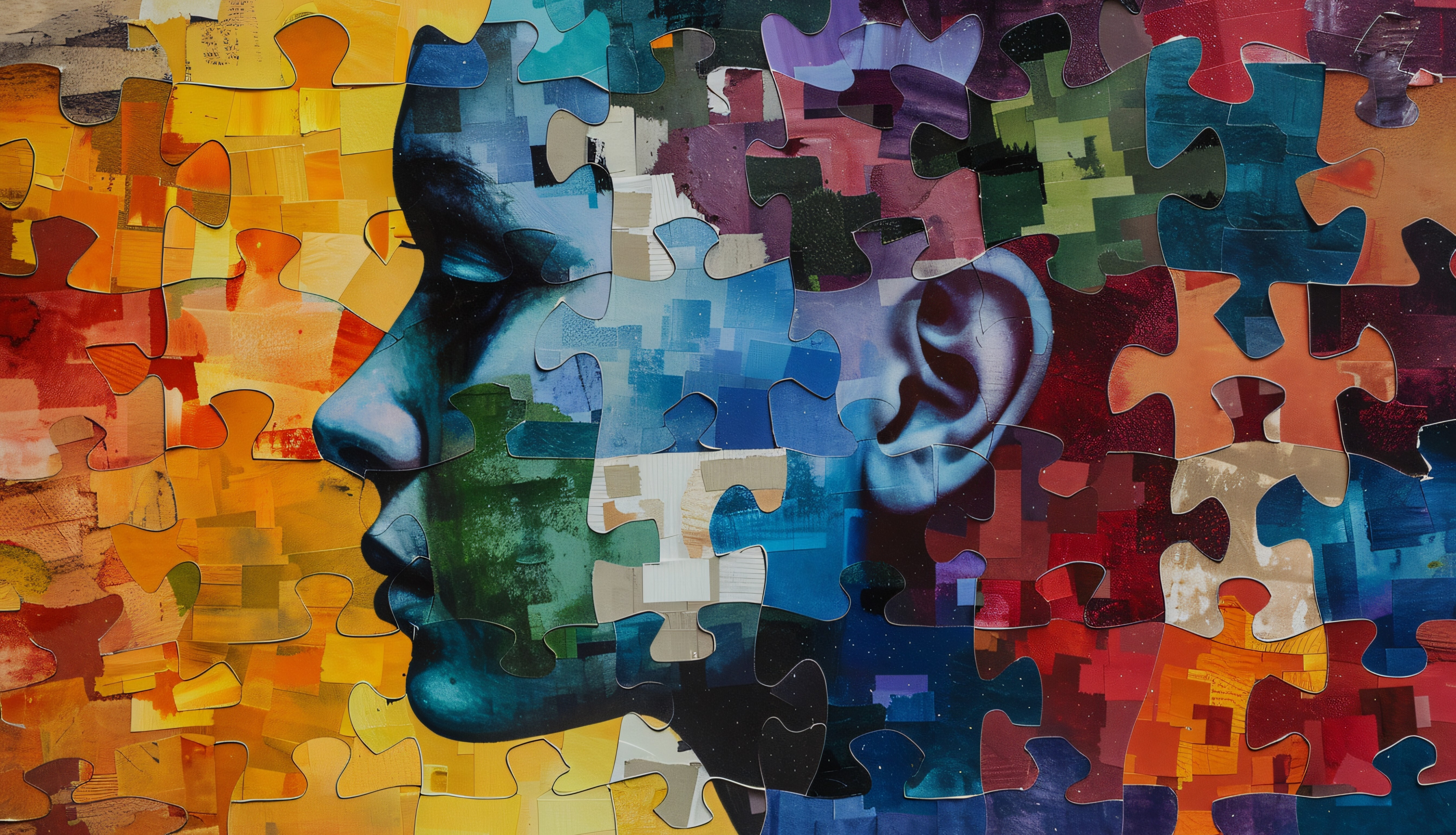Schizophrenia: Common Questions Answered

Welcome back to our enlightening series on Schizophrenia. In this third entry, we're going to delve even deeper into the intricacies of this complex mental health condition. This blog is dedicated to clearing up common misconceptions, shedding light on lesser-known facts, and continuing our journey towards understanding and empathy.
We appreciate your engagement and interest so in this post, we'll be tackling more of your frequently asked questions about schizophrenia.
Remember, knowledge is power! The more we know and understand about schizophrenia, the better we can support those affected by it and contribute to a world where mental health stigma becomes a thing of the past. Stay with us as we continue our journey through this important series, and remember: your questions and comments fuel this discussion. Let's unravel the mysteries of schizophrenia together.
Stay tuned, stay informed, and let's delve in!
.png?width=60&height=60&name=Copy%20of%20bipolar%20disorder%20instagram%20%20(3).png) Do genes play a role in schizophrenia?
Do genes play a role in schizophrenia?
.png?width=60&height=60&name=Copy%20of%20bipolar%20disorder%20instagram%20%20(4).png) Yes, genes do play a role in schizophrenia. Research has shown that people with a family history of the disorder are much more likely to develop it than those without a family history. Furthermore studies have identified a number of genes that are associated with an increased risk of developing schizophrenia, and it is believed that genetic factors account for approximately 80% of the risk of developing the disorder.
Yes, genes do play a role in schizophrenia. Research has shown that people with a family history of the disorder are much more likely to develop it than those without a family history. Furthermore studies have identified a number of genes that are associated with an increased risk of developing schizophrenia, and it is believed that genetic factors account for approximately 80% of the risk of developing the disorder..png?width=60&height=60&name=Copy%20of%20bipolar%20disorder%20instagram%20%20(3).png) Can drugs/chemicals cause schizophrenia?
Can drugs/chemicals cause schizophrenia? .png?width=60&height=60&name=Copy%20of%20bipolar%20disorder%20instagram%20%20(4).png) No, drug use and chemicals do not cause schizophrenia. While drug use can increase the risk of triggering schizophrenia in people who are already vulnerable, it is not considered a direct cause. The exact cause of schizophrenia is unknown, but it is believed to be a combination of genetic, biological, and environmental factors. Environmental factors that cause Schizophrenia Environmental factors that may contribute to the development of schizophrenia includes the following.
No, drug use and chemicals do not cause schizophrenia. While drug use can increase the risk of triggering schizophrenia in people who are already vulnerable, it is not considered a direct cause. The exact cause of schizophrenia is unknown, but it is believed to be a combination of genetic, biological, and environmental factors. Environmental factors that cause Schizophrenia Environmental factors that may contribute to the development of schizophrenia includes the following.
- Exposure to viruses or nutritional deficiencies during prenatal development.
- Exposure to certain toxins or pollutants in the environment.
- Stressful or traumatic life events, such as the death of a loved one.
- Social isolation or a lack of social support.
- Drug or alcohol abuse.
- Exposure to violence or abuse.
.png?width=60&height=60&name=Copy%20of%20bipolar%20disorder%20instagram%20%20(3).png) What are common behaviors of someone who has schizophrenia?
What are common behaviors of someone who has schizophrenia?.png?width=60&height=60&name=Copy%20of%20bipolar%20disorder%20instagram%20%20(4).png) Some common behaviors include the following
Some common behaviors include the following
- Hallucinations: Hearing, seeing, or feeling things that are not real
- Delusions: False beliefs or ideas that are not based in reality
- Disorganized thinking and speech
- Inability to concentrate and focus
- Social withdrawal
- Lack of motivation
- Unusual or inappropriate emotions or behaviors
- Difficulty in making decisions or completing tasks
- Poor hygiene
- Changes in sleep patterns
.png?width=60&height=60&name=Copy%20of%20bipolar%20disorder%20instagram%20%20(3).png) Do people with schizophrenia realize they have it?
Do people with schizophrenia realize they have it?.png?width=60&height=60&name=Copy%20of%20bipolar%20disorder%20instagram%20%20(4).png) It is not uncommon for people with schizophrenia to lack insight into their condition, meaning they might not be aware that they have it or might deny that anything is wrong. Since schizophrenia can impact a person's ability to think clearly, they may not recognize the symptoms of their illness or understand the severity of the symptoms. However, with proper treatment and support, people with schizophrenia can gain insight into their condition and gain a better understanding of how to manage their symptoms.
It is not uncommon for people with schizophrenia to lack insight into their condition, meaning they might not be aware that they have it or might deny that anything is wrong. Since schizophrenia can impact a person's ability to think clearly, they may not recognize the symptoms of their illness or understand the severity of the symptoms. However, with proper treatment and support, people with schizophrenia can gain insight into their condition and gain a better understanding of how to manage their symptoms.
.png?width=60&height=60&name=Copy%20of%20bipolar%20disorder%20instagram%20%20(3).png) Does schizophrenia effect a persons thoughts?
Does schizophrenia effect a persons thoughts?.png?width=60&height=60&name=Copy%20of%20bipolar%20disorder%20instagram%20%20(4).png) Schizophrenia can cause people to experience a wide range of thoughts and beliefs that are not based on reality. These can include delusions, which are false beliefs that are held despite evidence to the contrary, and hallucinations, which are experiences that seem real but have no basis.in reality People with schizophrenia may also experience disorganized thinking and difficulty concentrating. Additionally, they may struggle to interpret their emotions and express their thoughts.
Schizophrenia can cause people to experience a wide range of thoughts and beliefs that are not based on reality. These can include delusions, which are false beliefs that are held despite evidence to the contrary, and hallucinations, which are experiences that seem real but have no basis.in reality People with schizophrenia may also experience disorganized thinking and difficulty concentrating. Additionally, they may struggle to interpret their emotions and express their thoughts.
.png?width=60&height=60&name=Copy%20of%20bipolar%20disorder%20instagram%20%20(3).png) Can SCPT be mistaken for another disorder?
Can SCPT be mistaken for another disorder?.png?width=60&height=60&name=Copy%20of%20bipolar%20disorder%20instagram%20%20(4).png) Yes, schizophrenia can sometimes be mistaken for other mental health disorders, such as bipolar disorder, depression, or anxiety. It is important to speak with a mental health professional to accurately diagnose any mental health disorder.
Yes, schizophrenia can sometimes be mistaken for other mental health disorders, such as bipolar disorder, depression, or anxiety. It is important to speak with a mental health professional to accurately diagnose any mental health disorder.
.png?width=60&height=60&name=Copy%20of%20bipolar%20disorder%20instagram%20%20(3).png) Can schizophrenia be cured?
Can schizophrenia be cured?.png?width=60&height=60&name=Copy%20of%20bipolar%20disorder%20instagram%20%20(4).png) Schizophrenia is a chronic, severe, and disabling mental illness that is sometimes treated with medications and psychosocial treatments. While there is no known cure for schizophrenia, it is possible to manage the symptoms and lead a productive life. With the right treatment and support, many people with schizophrenia can experience significant, ongoing relief from their symptoms. At this time, there is no known cure for schizophrenia. However, there are treatments available that can help manage the symptoms and improve quality of life. These include investigational medications, medications, psychotherapy, and lifestyle changes.
Schizophrenia is a chronic, severe, and disabling mental illness that is sometimes treated with medications and psychosocial treatments. While there is no known cure for schizophrenia, it is possible to manage the symptoms and lead a productive life. With the right treatment and support, many people with schizophrenia can experience significant, ongoing relief from their symptoms. At this time, there is no known cure for schizophrenia. However, there are treatments available that can help manage the symptoms and improve quality of life. These include investigational medications, medications, psychotherapy, and lifestyle changes.
.png?width=60&height=60&name=Copy%20of%20bipolar%20disorder%20instagram%20%20(3).png) How do you test for schizophrenia?
How do you test for schizophrenia?.png?width=60&height=60&name=Copy%20of%20bipolar%20disorder%20instagram%20%20(4).png) Physicians use a combination of physical exams, psychological assessments, and laboratory tests to diagnose schizophrenia. The physical exam may include a complete medical history, a physical exam, and lab tests to rule out other illnesses that may cause similar symptoms, such as a thyroid disorder. The psychological assessment includes psychological tests, such as a personality test, to evaluate thinking, behavior, and mood. Finally, physicians may use imaging tests, such as an MRI or CT scan, to look for any structural changes in the brain that might be associated with schizophrenia. If the physician suspects that the patient has schizophrenia, they may refer them to a psychiatrist for further evaluation and treatment.
Physicians use a combination of physical exams, psychological assessments, and laboratory tests to diagnose schizophrenia. The physical exam may include a complete medical history, a physical exam, and lab tests to rule out other illnesses that may cause similar symptoms, such as a thyroid disorder. The psychological assessment includes psychological tests, such as a personality test, to evaluate thinking, behavior, and mood. Finally, physicians may use imaging tests, such as an MRI or CT scan, to look for any structural changes in the brain that might be associated with schizophrenia. If the physician suspects that the patient has schizophrenia, they may refer them to a psychiatrist for further evaluation and treatment.
.png?width=60&height=60&name=Copy%20of%20bipolar%20disorder%20instagram%20%20(3).png) Can someone with schizophrenia live alone, drive, hold employment?
Can someone with schizophrenia live alone, drive, hold employment? .png?width=60&height=60&name=Copy%20of%20bipolar%20disorder%20instagram%20%20(4).png) Yes, people with schizophrenia can live alone, drive a car, and hold a job. However, they may need support in order to do these things. For example, they may need medication and therapy, have a support system of family and friends, and have access to resources that can help them manage their condition. Driving may require additional assessment and training, and employers may need to make accommodations for their employees with schizophrenia.
Yes, people with schizophrenia can live alone, drive a car, and hold a job. However, they may need support in order to do these things. For example, they may need medication and therapy, have a support system of family and friends, and have access to resources that can help them manage their condition. Driving may require additional assessment and training, and employers may need to make accommodations for their employees with schizophrenia.
.png?width=60&height=60&name=Copy%20of%20bipolar%20disorder%20instagram%20%20(3).png) What does schizophrenia do to someone who has it? Physically, chemically, mentally?
What does schizophrenia do to someone who has it? Physically, chemically, mentally?.png?width=60&height=60&name=Copy%20of%20bipolar%20disorder%20instagram%20%20(4).png) Physcially: Schizophrenia can cause someone to have physical symptoms like abnormal movements, difficulty with coordination and balance, and tremors. Chemically: Schizophrenia is thought to be caused by an imbalance of certain neurotransmitters in the brain, such as dopamine and serotonin. Mentally: Schizophrenia can cause a range of mental symptoms, including delusions, paranoia, strange thoughts and beliefs, hallucinations, disorganized speech and behavior, and difficulty with concentration and focus. It can also lead to social withdrawal, depression, and lack of motivation.
Physcially: Schizophrenia can cause someone to have physical symptoms like abnormal movements, difficulty with coordination and balance, and tremors. Chemically: Schizophrenia is thought to be caused by an imbalance of certain neurotransmitters in the brain, such as dopamine and serotonin. Mentally: Schizophrenia can cause a range of mental symptoms, including delusions, paranoia, strange thoughts and beliefs, hallucinations, disorganized speech and behavior, and difficulty with concentration and focus. It can also lead to social withdrawal, depression, and lack of motivation.
Stay with us as we continue our journey through this important series, and remember: your questions and comments fuel this discussion. Let's unravel the mysteries of schizophrenia together.
Missed the first two blogs in the series, here you go:
Breaking Down Barriers: A Series on Schizophrenia Awareness & Advocacy
The Journey of Schizophrenia: Understanding and Supporting Those Affected




.png)
